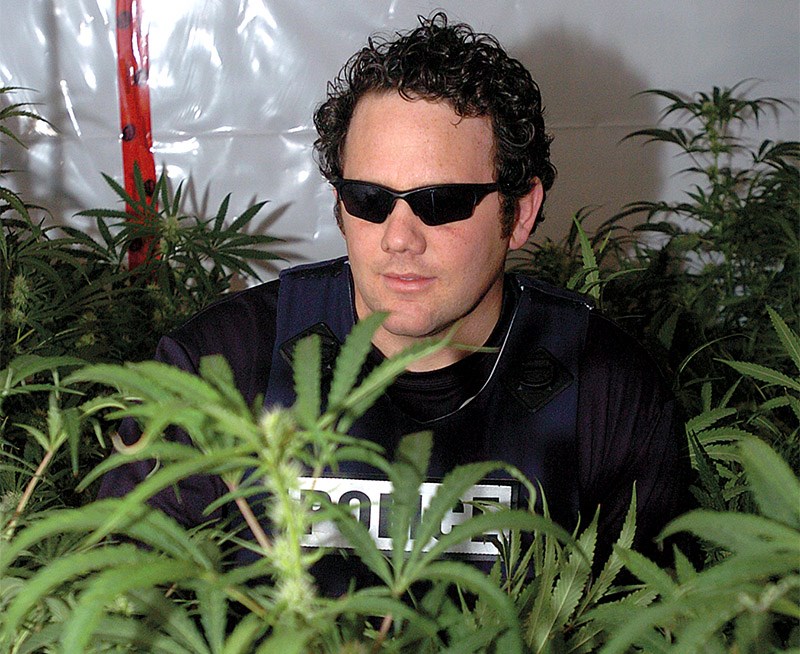It’s impossible to legally purchase pot anywhere in the Tri-Cities, and local residents with medical marijuana prescriptions currently need to get their weed in other cities via mail from among 40 different licensed producers approved by Health Canada.
This could soon change after the federal government last week introduced the Cannabis Act to legalize adult recreational use of cannabis possibly as early as July 1, 2018. It will be up to the provinces to determine how legal pot will be priced and distributed and at what age.
But in many cases, it could be cities that will bear the brunt of new rules as they look to enforce the sale and consumption of marijuana in their communities.
While the feds will be in charge of overseeing the country’s cannabis supply and have suggested a minimum age of 18, provincial governments will decide how products are distributed and sold as well as the minimum age to purchase.
Things remain hazy at the municipal level after B.C. Supreme Court judge Miriam Gropper ruled in February that cities have the right to deny business licences to dispensaries and can ban the cultivation or sale of cannabis through zoning bylaws.
WORK TOGETHER
The ruling came after the lawyer for Don Briere, who operates more than a dozen other dispensaries across the country, failed to persuade the judge that the city of Abbotsford was violating the Constitution by restricting access to medical marijuana when it refused to give him a business permit.
So far, Tri-City municipal governments haven’t rolled out the welcome mat to dispensaries. The former location of a Cannabis Culture outlet on PoCo’s Shaughnessy Street remains vacant after a police raid in November. Last month, Port Coquitlam city councillors moved to approve zoning bylaw changes that would not only ban sales of weed at unlicensed pot shops but also any pipes, vaporizers or other accessories used to consume it.
Coquitlam Mayor Richard Stewart said the best way to move forward is for cities to work together.
“Council has already made it clear that we were reluctant, in the absence of proper regulatory framework, to embrace the dispensaries model that exists in Vancouver,” Stewart told The Tri-City News. “The best way for cities to adapt is for us to contemplate having somewhat uniform regulations across the region, if not across the province and across the country.
“From my perspective, it doesn’t make much sense to each one of us to try to invent this wheel but rather to potentially work together to come with common sense regulations that support our communities.”
Stewart declined to answer if he’d ever smoked a joint but said doctors have suggested he try medical marijuana to treat a chronic pain condition.
“I recognize that cannabis has some properties that can be very beneficial for some conditions,” he said, “and to some degree it is a shame that we have always resisted those medicinal properties and that most cannabis gets used recreationally rather than medicinally.”
The federal Liberal government’s promise to legalize recreational marijuana could result in sweeping policy changes that could affect public safety and health across Canada. The act, introduced April 13, would allow adults 18 and over to possess up to 30 grams of dried cannabis or its equivalent in public and to share up to 30 grams of dried marijuana with other adults and buy cannabis or cannabis oil from a provincially regulated retailer. Up to four plants could be grown in a home for personal use.
But the new rules, if passed, would also come with tough penalties for selling pot to youth and for driving while high.
How B.C. will adapt to the changes is an open question and has yet to be a major issue in the provincial election campaign.
But new businesses opening could potentially create a windfall to the area.
The population of the Tri-Cities is roughly 234,000, and similar sized American cities in states that have legalized pot have typically seen more than a dozen new businesses open. For example, there are currently 14 in Aurora, Col., 19 in Fremont, Calif. and 19 across the border in Spokane serving customers 21 or older, according to Weedmaps.com.
STILL ILLEGAL
One of the provincial BC Liberal government’s main concerns is road safety and Public Safety Minister Mike Morris told reporters at a March 28 event in Surrey that work is underway to develop a new screening device able to sniff out stoned drivers.
“With respect to impaired operation of a motor vehicle under any kind of a drug, including THC, we’ve been piloting some various roadside screening devices so that we can determine whether or not they are under the influence of a drug and that work is still ongoing and we’re hoping we will have a prototype identified before the federal legislation is enacted,” Morris said. “It’s just a matter of getting a device that is handy enough that a police officer can use it on the roadside to make that determination.”
But until laws change, anyone caught possessing or selling pot is risking arrest. Coquitlam RCMP spokesperson Cpl. Mike McLaughlin said the decision to take more of a hands-off approach isn’t up to police.
“I can only talk about our jurisdiction and really our stance hasn’t changed,” said McLaughlin. “As it stands now, marijuana is illegal and we are charged with enforcing those laws and we shall.”



